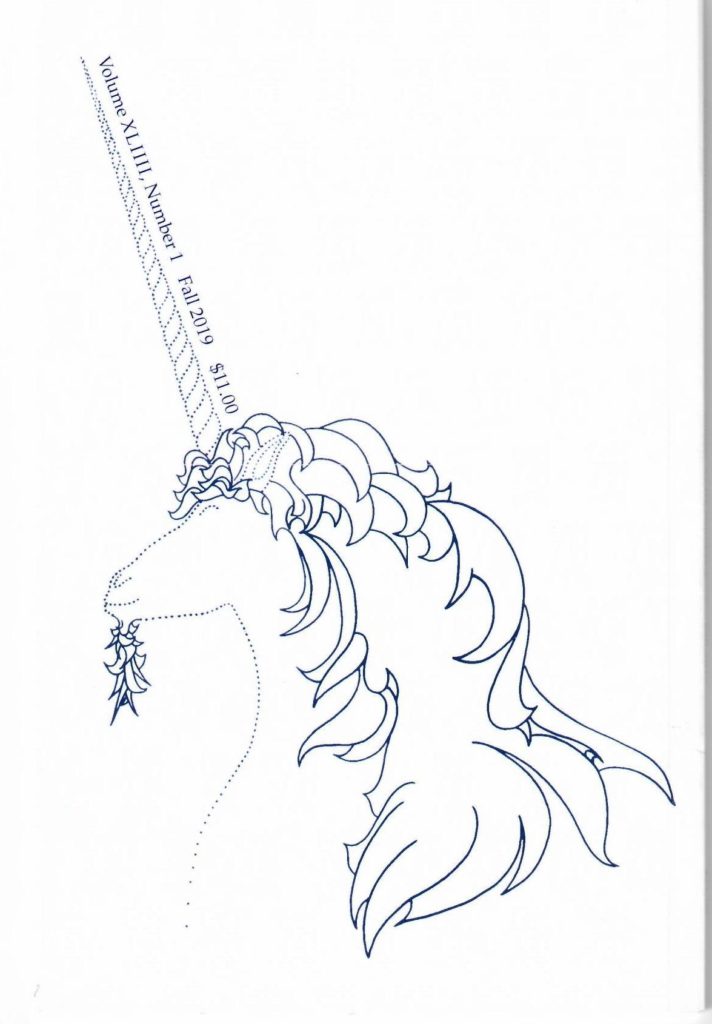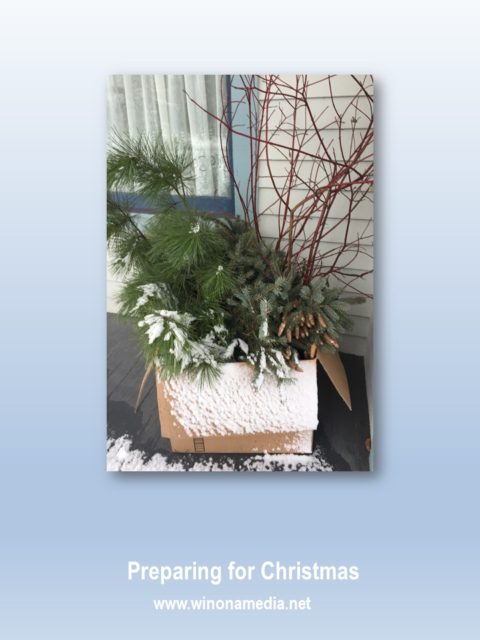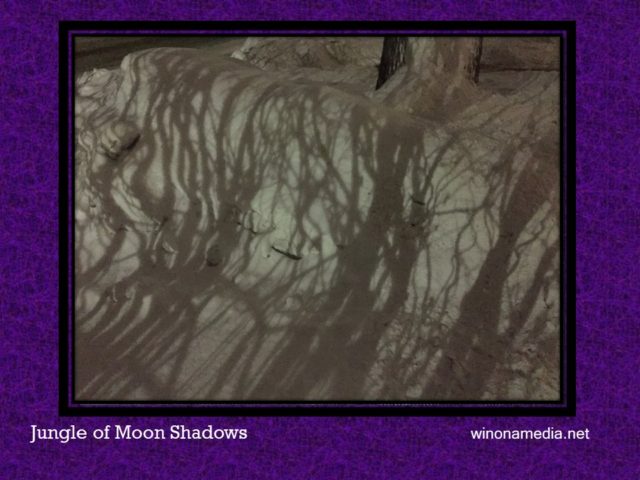
Postcard: December 16, 2019



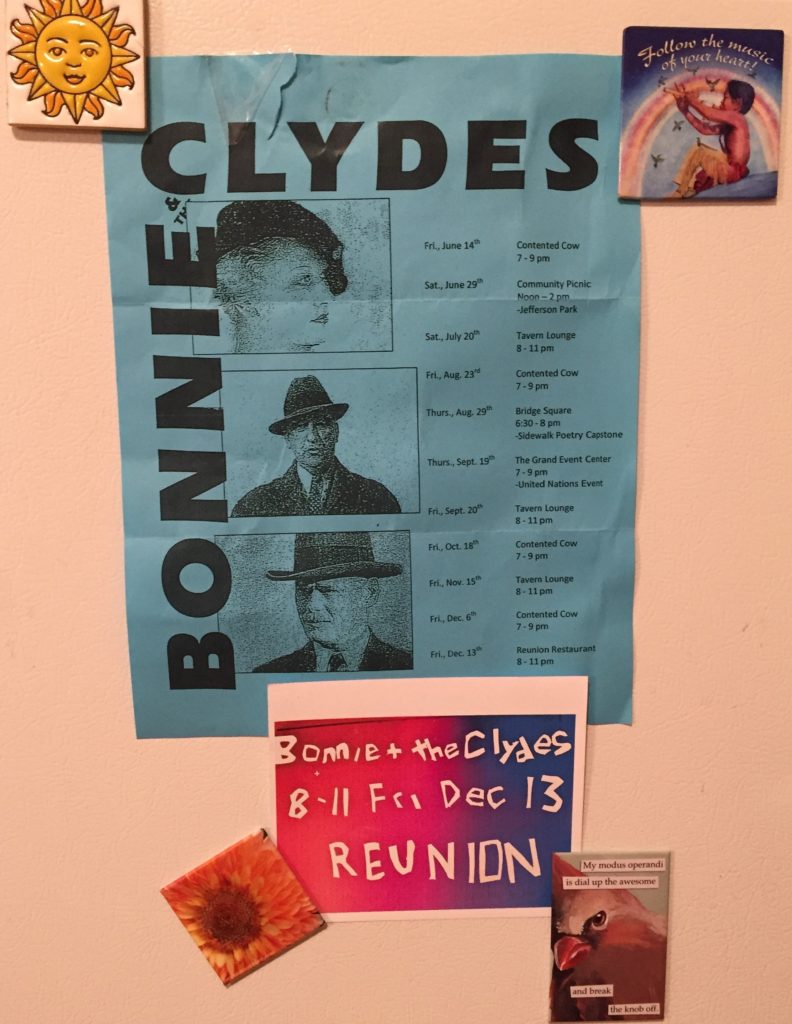
Each year, Tim and I have looked forward to appearances by our favorite band, Bonnie and the Clydes. Last evening, we were there at the newly reopened Reunion Restaurant to cheer on their farewell gig for at least the 2019 season.
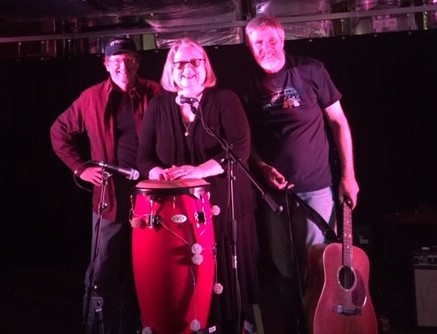
For the past twenty-three years, Bonnie Jean Flom, Scott McMillan, and Bill McGrath have been delighting Northfielders with their renditions of some of the best–and most beloved–music of the 1960s and 1970s.
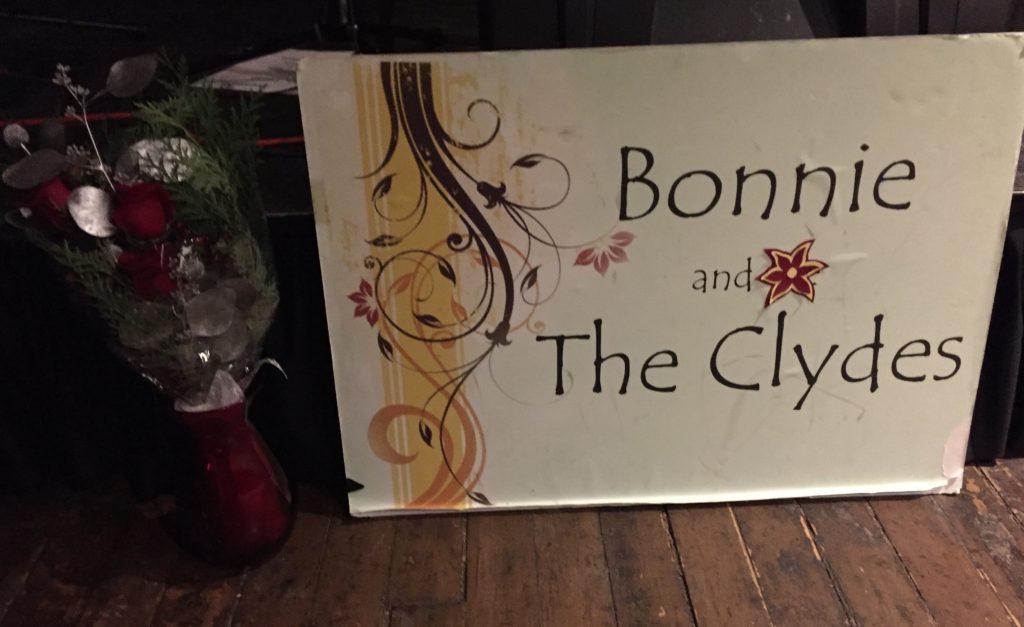
This iconic local cover band began small (legend has it that they first played in the living room of Bart and Sue DiMalignon, and that they considered naming themselves “The Low Ego Trio.”) Despite their disinterest in recording and stardom, Bonnie and the Clydes have gathered their share of press clippings and fans over the past twenty-three years. The band has been a regular feature in local venues each summer and fall, as well as at the capstone event for the Sidewalk Poetry program for the past decade, and Tim and I were thrilled when they agreed to perform in 2016 for Julia’s high school graduation party.
Last evening was a bittersweet occasion because the future of the band is currently uncertain. Nonetheless, the energy of the crowd (which pulled family, friends, and fans from the East Coast and the Rocky Mountains) was high, and the band’s musicianship soared last night. Bonnie Jean’s son, Scott Norman, and a friend crafted special t-shirts to mark the occasion.


Opening with Bob Dylan’s “Just Like a Woman” and playing for three sets, the band treated the crowd to classics by the Grateful Dead, Townes Van Zandt, Little Feat, Van Morrison, the Beatles, the Band, and many others.
For me–though it is so hard to name a favorite–the gospel song, “Keep Your Eyes on the Prize,” brought tears to my eyes, even as we all joined in the chorus singing “Hold on!”
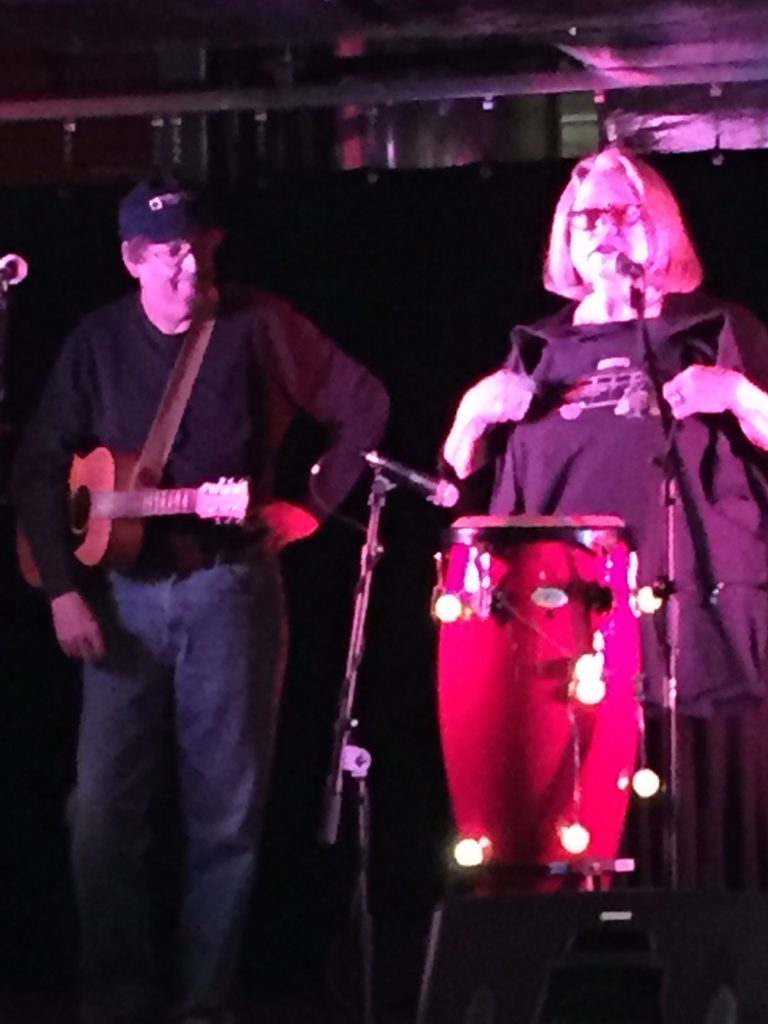
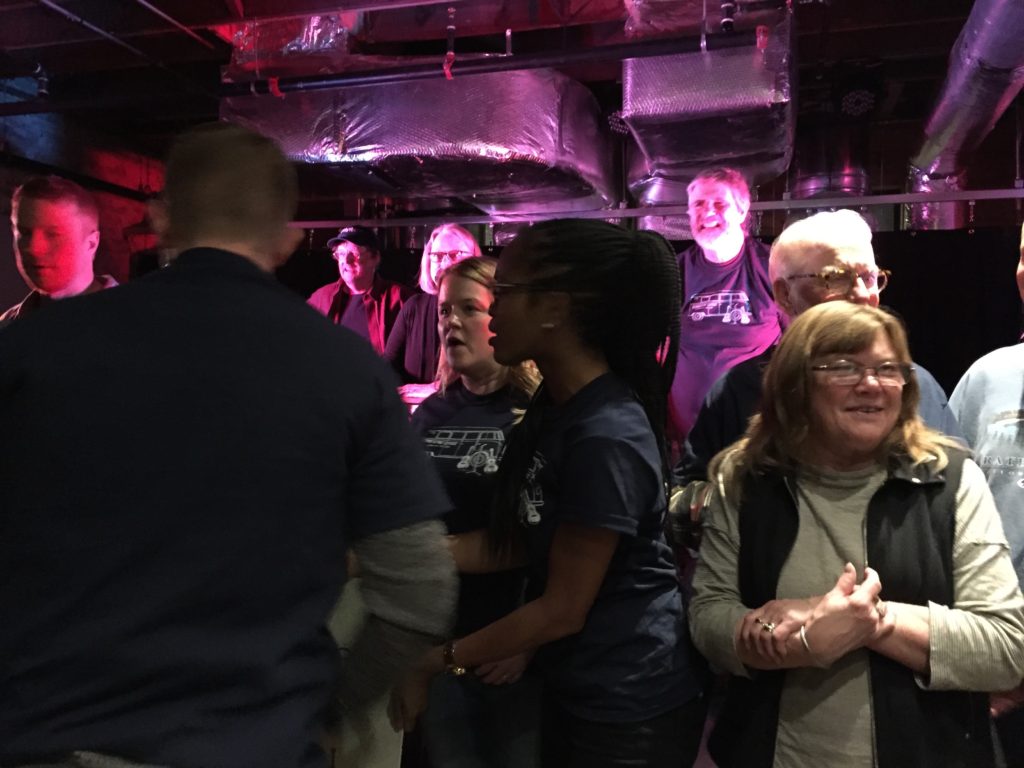
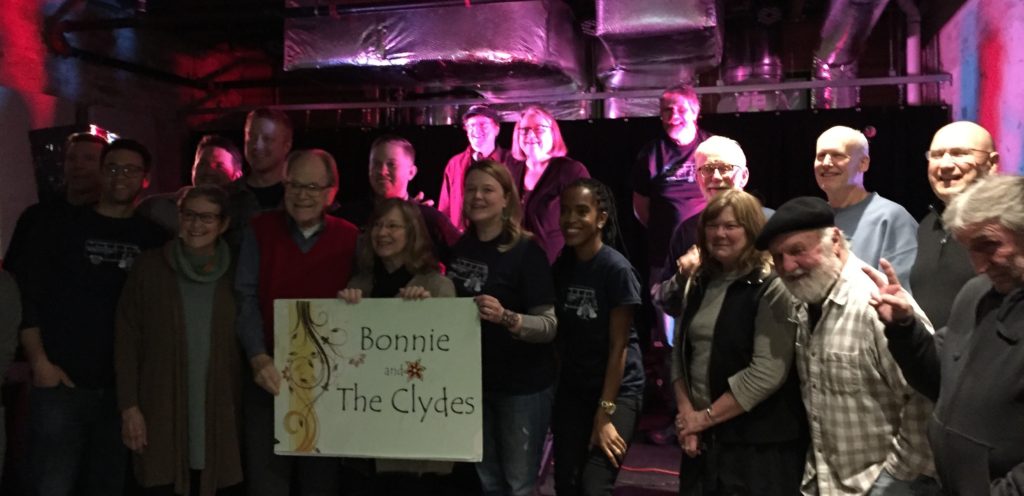
I think it is fair to say that we are all hoping for another reunion. Meanwhile, we are all grateful for the memories, the rhythms and harmonies, the sheer joy of sharing music. Thank you, Bonnie Jean, Scott, and Bill!
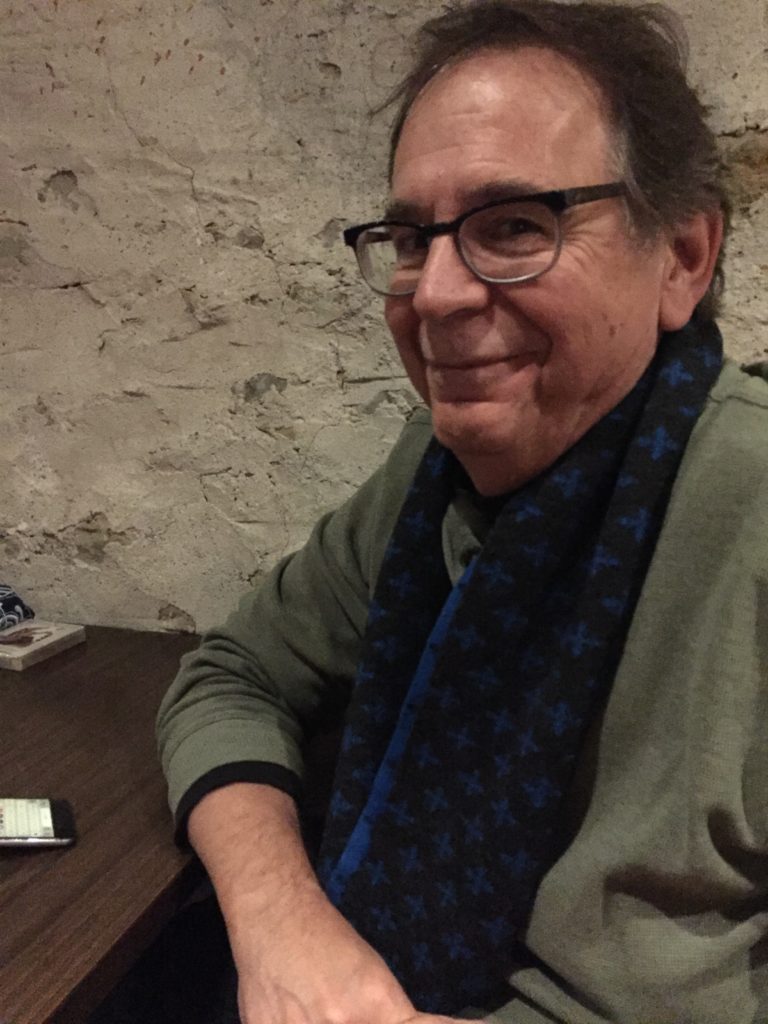

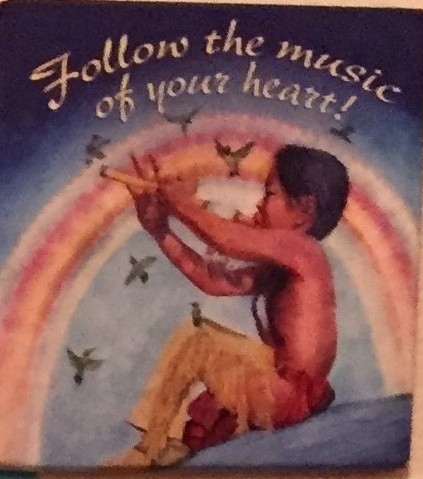
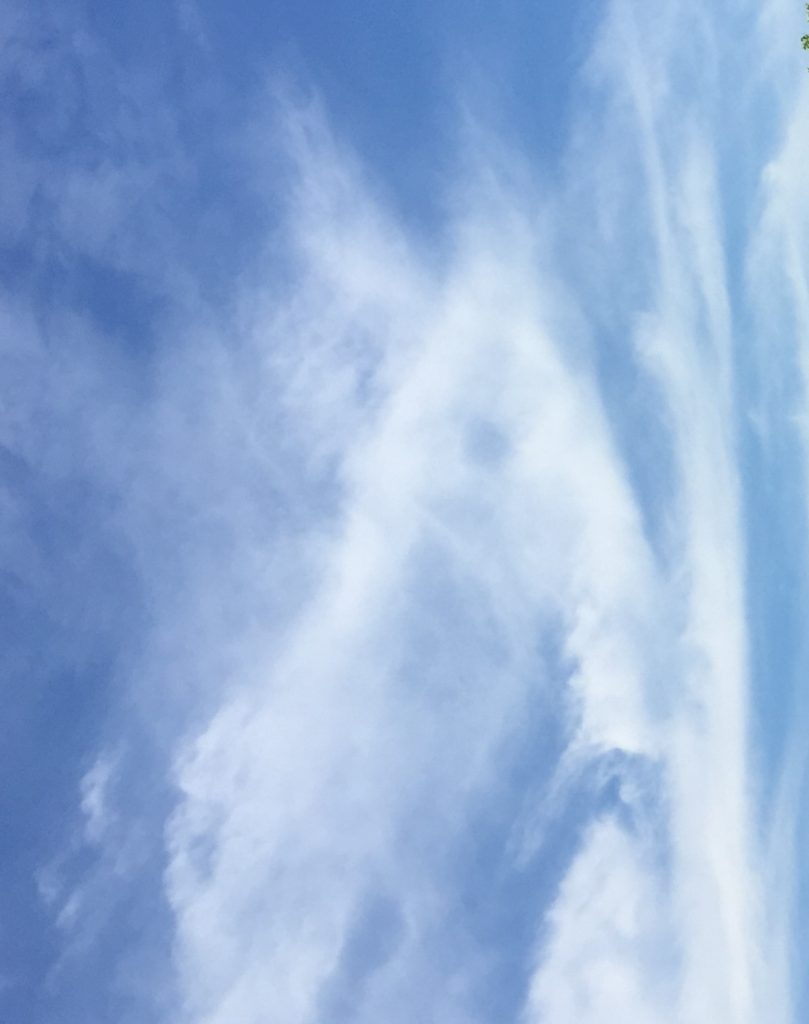
This image (of high clouds over the local Cannon River) is an admittedly abstract impression of a unicorn. This newest issue–Fall 2019– of Blue Unicorn: A Journal of Poetry, however, offers a collection of poetry that is both solid and soaring.
Here is what this issue looked like when it arrived at my house, about a week ago:
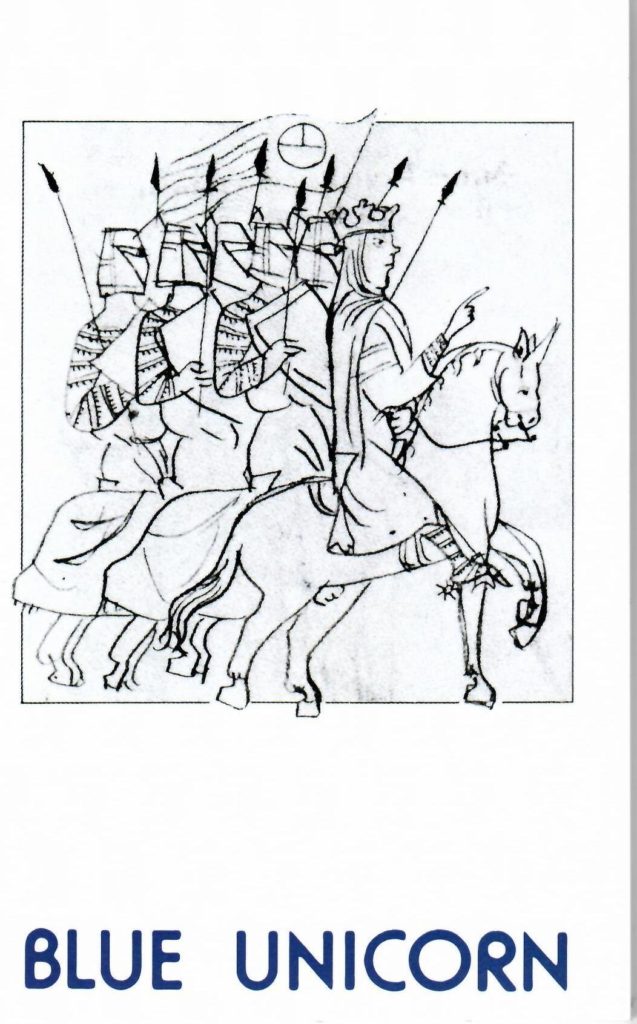
And here is what it looks like now. As you can see, this issue is chock-full of poems I want to read more than once.
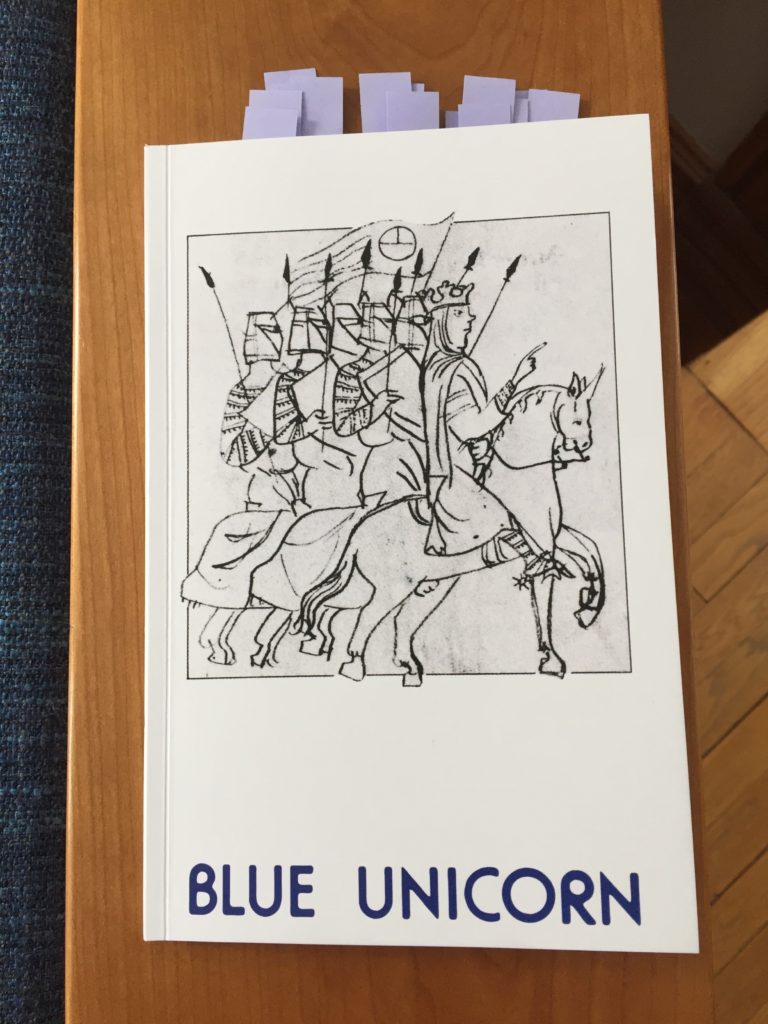
Like each issue I have seen, this one offers the work of dozens of contemporary poets and a welcome variety of tone, subject matter, and form. Short or long, original work (mostly) and new translations of Federico García Lorca and Antonio Machado, sonnets, and nonce forms–all the poems are effective and some startlingly so.
I almost can’t decide which poems to mention, as there are so many I like, but I will try.
Because (as many of you know) I have decided from here on out to transplant my birthday from January to June (when my energy is high and I can be reliably outdoors), I was drawn to a poem called “January Baby,” by Ellen Pickus.
Paul Malamud’s arrangement of couplets in quatrains, called “Fête Champêtre,”delighted me with its evocations of the Baroque French paintings by Watteau and Fragonard–all the more since Tim and I just viewed the BBC series hosted by wacky-but-scholarly Waldemar Janusczcak called “Baroque! From St. Peter’s to St. Paul’s” about the way new ideas in painting migrated across Europe.
“Wabi-Sabi Love” by K. Lauren de Boer made me rethink the whole concept of self-evaluation in the mirror as the years slip by.
“Charles Baudelaire” by Susie Gharib reminded me of that beloved battered copy of Les Fleurs du Mal (in translation) that I read and reread as a teenage poet.
The poem by Laurence W. Thomas, “Carnival,” springs open on the last line like a magic trick.
Each of the quartet of poems by Daniel J. Langton caught my attention, but I was especially caught by the sonnet titled “Trying is Trying.” It has an arresting first line, “I wish I were an irregular verb” and ends with an even stronger image that echoes the ways that language twists into myth.
You get the idea!
I began reading at the beginning, and after completing each poem would turn to the contributors’s notes to learn a little something about each poet in turn. The sixty-four poets have backgrounds as diverse as their poems–from students, teachers, and translators to a wilderness guide and commercial fisherman, a physician-scientist, the head gardener for the PBS series, “The Victory Garden,” a janitor, and a professor of translational neurobiology- and they live all over the United States in big cities, tiny towns, or wilderness areas (or in England or Ireland or Syria or Australia).
The editor, John Hart, notes that the journal will still be a print edition of the journal for the foreseeable future, but that in January 2020 they will also have an expanded web presence. Including a subscription portal (highly recommend!) and online access to past issues for subscribers. You’ll be able to sign up for an online only subscription for a mere $10.00, while $20.00 gets you full online subscriber benefits as well as the two annual print issues!
